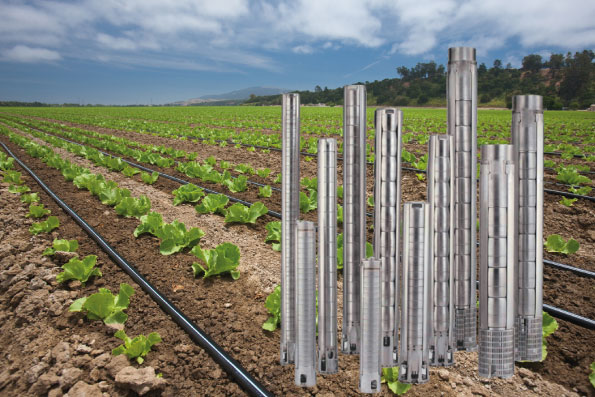
Choosing the Right Stainless Steel Borehole Pumps & Motors
Choosing the Right Stainless Steel Borehole Pumps & Motors – When it comes to extracting groundwater efficiently and reliably, stainless steel borehole pumps and motors are essential. These components are crucial for ensuring a steady water supply, especially in areas where surface water is scarce. In this comprehensive guide, we will delve into the numerous advantages of stainless steel borehole pumps, the key specifications to consider when purchasing, and the steps to select the right pump for your needs. By understanding these elements, you can make an informed decision that ensures longevity and efficiency in your water extraction system. The Advantages of Stainless Steel Borehole Pumps Durability and Longevity Firstly, one of the most significant advantages of stainless steel borehole pumps is their exceptional durability. Unlike pumps made from other materials, stainless steel is highly resistant to corrosion and wear. This resistance is particularly important in environments where the water contains minerals or chemicals that can corrode traditional materials. Consequently, stainless steel pumps have a longer lifespan and require less frequent maintenance, resulting in cost savings over time. Corrosion Resistance Moreover, the natural corrosion resistance of stainless steel makes these pumps ideal for a variety of applications. Groundwater often contains elements that can degrade other materials, but stainless steel remains unaffected. This characteristic ensures that the pump operates efficiently and reliably, even in the most challenging conditions. Therefore, investing in stainless steel pumps translates to fewer replacements and repairs, enhancing overall operational efficiency. High Efficiency In addition to durability, stainless steel borehole pumps are designed for high efficiency. These pumps utilize advanced engineering to deliver the required water flow with minimal energy consumption. As a result, businesses and homeowners can enjoy lower energy bills and reduced environmental impact. High efficiency also means that the pump can handle greater workloads without compromising performance, making it suitable for both small-scale and large-scale applications. Key Specifications to Consider When Buying Borehole Pumps Pump Size and Type To begin with, it is essential to consider the size and type of the pump. The size of the pump must match the diameter of your borehole to ensure a proper fit and efficient operation. Common sizes range from 3 to 10 inches. Additionally, the type of pump—typically submersible for borehole applications—should be suitable for your specific needs. Submersible pumps are placed below the water level and push water to the surface, making them ideal for deep boreholes. Flow Rate and Head Next, you should evaluate the flow rate and head of the pump. The flow rate, measured in gallons per minute (GPM) or liters per second (LPS), indicates how much water the pump can deliver. It is crucial to assess your water requirements accurately and choose a pump that meets or exceeds this demand. Similarly, the head, which is the height the pump can lift water, must match the depth of your borehole and the distance to the delivery point. Selecting a pump with the appropriate head ensures efficient water extraction and delivery. Motor Power Equally important is the motor power, which determines the pump’s ability to lift and move water. Measured in horsepower (HP) or kilowatts (kW), the motor power must be sufficient to handle the required flow rate and head. Choosing the right motor power is a balancing act; overestimating can lead to unnecessary energy consumption, while underestimating can result in inadequate water supply. Therefore, it is advisable to consult with experts to determine the optimal motor power for your application. Material and Build Quality Furthermore, the material and build quality of the pump and motor components are critical factors. Ensure that both are made from high-quality stainless steel to guarantee resistance to corrosion and wear. High-quality materials not only enhance the longevity of the pump but also ensure that it performs efficiently under various conditions. Look for pumps with precision-engineered components for optimal performance and reliability. Efficiency and Energy Consumption Energy efficiency is another key consideration. Efficient pumps can significantly reduce operational costs and environmental impact. Look for models with high-efficiency ratings and advanced motor technology. Variable frequency drives (VFDs) are particularly beneficial as they adjust the pump’s speed to match the demand, further enhancing efficiency. By choosing an energy-efficient pump, you can enjoy long-term savings and contribute to sustainable water management practices. Warranty and Support Lastly, consider the warranty and support provided by the manufacturer. A comprehensive warranty and reliable customer support are essential for peace of mind. Ensure that the manufacturer offers a good warranty period and has a reputation for excellent after-sales service. This ensures that you have access to help and resources if any issues arise with your pump system. How to Select the Right Borehole Pump Assess Your Water Needs Firstly, determine your daily water usage requirements. Consider both peak and average usage to ensure that the pump can handle the demand. Understanding your water needs is the foundation of selecting the right pump, as it influences the required flow rate and motor power. Conduct a Borehole Test Secondly, conduct a professional borehole test to gather crucial information about the depth, water yield, and static water level. This data is essential for selecting a pump with the appropriate flow rate and head. A borehole test provides a clear understanding of the conditions your pump will operate under, ensuring that you choose a pump that can perform effectively. Consult with Experts Next, engage with professionals who have experience in borehole systems. They can provide valuable insights and recommendations based on your specific requirements and the characteristics of your borehole. Expert advice can help you avoid common pitfalls and select a pump that offers the best performance and reliability. Compare Brands and Models Additionally, research different brands and models of stainless steel borehole pumps. Compare their specifications, efficiency ratings, and customer reviews. Leading brands often provide higher quality and better support. By comparing options, you can identify the pump that offers the best value for your investment. Consider Future Needs Finally, think about potential future water needs. If you…
